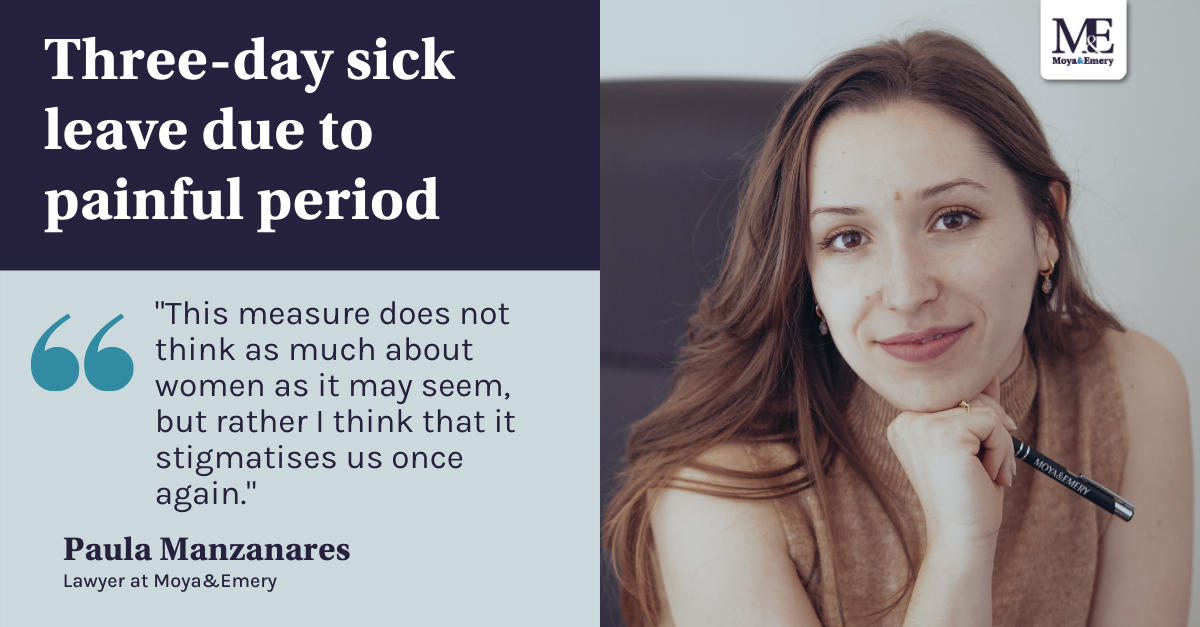It is not yet approved, but there is already talk of menstrual pain leave
As a woman, I know exactly what that is like, and on the surface it seems like a great relief for those of us who suffer from it, but all that glitters is not gold
Some trade unions have shown their mistrust of this measure, and I am afraid I must join them. Of course, as a stand-alone measure, there is no reason to object.
Apparently, it is a measure with women in mind.
Today, I am here to tell you that, in my opinion, this measure does not think as much about women as it may seem, but rather I think that it stigmatises us once again.
Let’s go back in time for a moment. We don’t have to go very far back, but before the equalisation of maternity and paternity leave, which was approved in this legislature or at the end of the previous one, but by the current government.
It is true that it is the mother who has to recover physically and it is therefore logical to think that she needs more time than a man on maternity leave. Before equalisation, women were hired less often than men because they were likely to take longer maternity leave if they became pregnant than if a man became a father.
Since equalisation, this excuse is no longer possible.
Well, the same will happen with the sick leave for menstrual pain. This measure – it is clear that it does not affect men – according to media reports, could mean three days’ leave for painful periods, and in exceptional cases, up to five days.
If as an employer you have the possibility of hiring a man and a woman, with the same training, for the same job,
would you hire someone who is likely to take three days off work every month?
The answer should be yes, because men and women have (or should have) equal opportunities. However, we must be realistic.
A businessman (especially the small businessman, the majority in our country) in, for example, the hotel and catering industry, who is already juggling to be able to accommodate the days off of his staff and stay open, will now find himself in a situation where he will also have to accommodate the possible recurrent absences of the female part of his staff.
Thus, that employer who does not want to discriminate against women, but who is, to a certain extent, forced by circumstances, will do so, thinking of his business.
As I mentioned at the beginning of this article, this measure is not yet in force, but is being debated in Congress, so it remains to be seen how this situation is to be alleviated. We will await developments.




What’s up, its good piece of writing about media print, we all understand media is a wonderful source of facts.